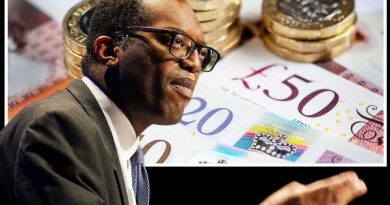UK Budget Surplus Narrows In January
Despite the record income tax receipts, the UK government budget surplus declined sharply in January due to higher interest payments and substantial spending on energy support schemes, official data revealed on Tuesday.
The Office for National Statistics said, excluding banks, public sector net borrowing was in GBP 5.42 billion surplus in January, which was about GBP 5.0 billion larger than the forecast of the Office for Budget Responsibility.
However, this was well below GBP 12.51 billion surplus registered in the same period last year, ONS data showed. The budget usually shows surplus in January as income tax payments become due.
Data showed that January’s high self-assessed tax receipts were partly offset by huge spending on energy support schemes as well as large one-off payments relating to historic customs duties owed to the EU.
In January, self-assessed income tax receipts were GBP 21.9 billion, which was the highest January figure since April 1999.
Debt interest payable totaled GBP 6.7 billion in January, the biggest January figure since monthly records began in April 1997. The recent increases are largely because of the effect of Retail Prices Index changes on index-linked gilts.
In the financial year-to-January 2023, the public sector borrowing increased by GBP 7.0 billion from the last year to GBP 116.9 billion. Still this was GBP 30.6 billion less than forecast by the OBR.
At the end of January, public sector net debt was GBP 2,492.1 billion, or around 98.9 percent of gross domestic product. The debt ratio is currently at levels last seen in the early 1960s.
Source: Read Full Article



